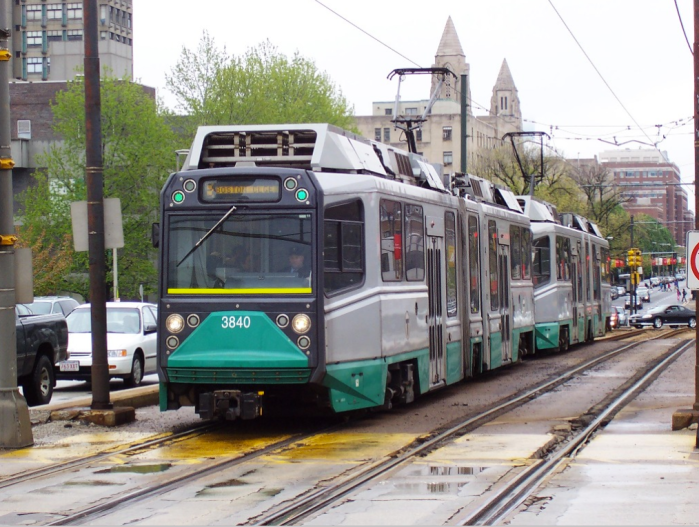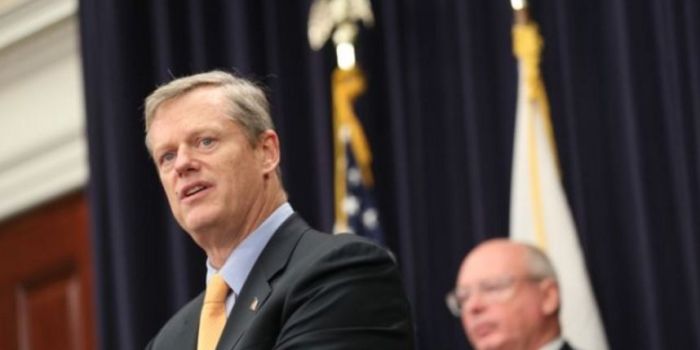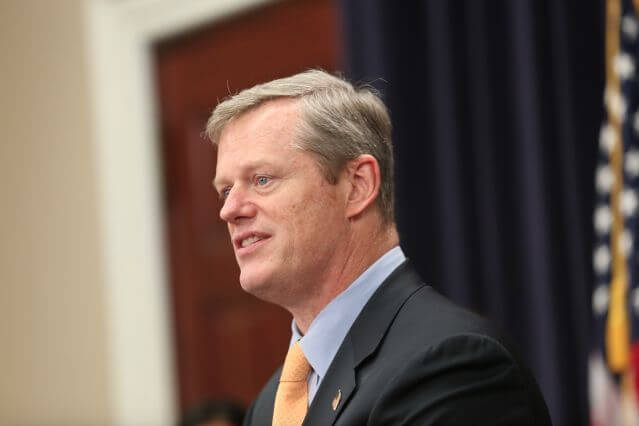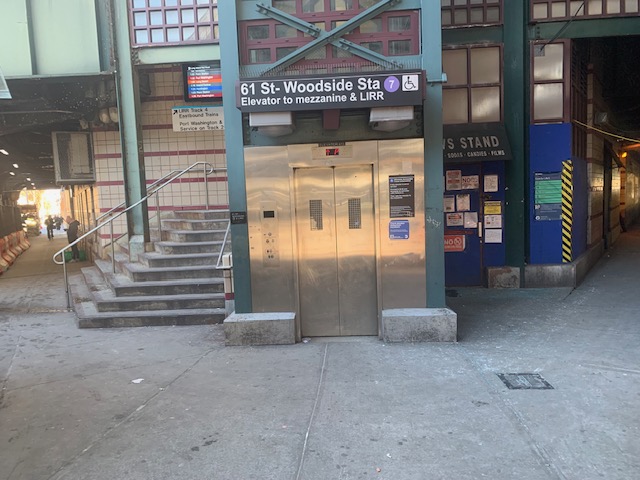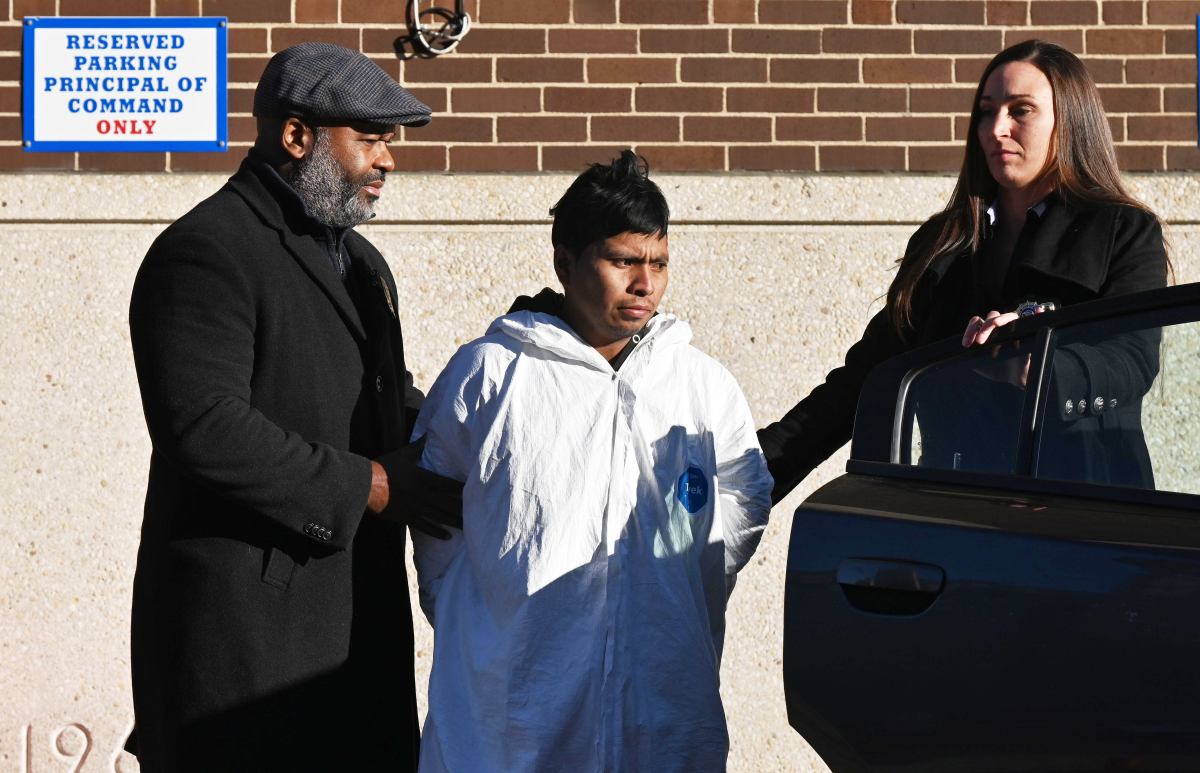Less than two years after signing an opioid abuse prevention bill, Gov Charlie Baker returned Tuesday with a multi-pronged proposal to further ramp up the fight against opioid addiction, including legislation that revives the concept of holding addicts involuntarily for treatment for up to 72 hours.
Baker is aiming through a combination of new state laws, federal requests and executive actions to create new pathways for addicts to access treatment, to educate young people on the risks of opioids and to more directly align the health care system with the needs of those struggling with addiction.
At a press conference, Baker said the biggest mistake the state could make would be to get “distracted” and not continue to find ways to help individuals and families experiencing “hell on earth” as they grapple with addiction.
New data released this week by public health officials showed that for the second straight quarter opioid-related deaths had declined from last year, but opioid incidents remain prevalent as the state has worked to make the overdose-reversing drug Narcan more available to first responders.
“We said when we got into this that the first goal was to break the back of the trend, break the back of the trend of prescribing, break the back of the trend on overdoses and break the back of the trend on deaths. I would say that we’re starting to make progress on that. But let’s face it, no one here, and I certainly don’t think anybody in Massachusetts, is going to view this as mission accomplished,” Baker said.
The Baker administration, in letters to go out this week to the acting secretary of Health and Human Services and the U.S. Attorney General, plans to ask the federal government to allow states the flexibility to make overdose-reversing naloxone available over the counter and increase access to medication-assisted treatment.
Legislation the governor will file, called the CARE Act, also aims to increase access to treatment services by ensuring treatment beds meet current needs and by expanding access to treatment through hospital emergency departments.
The bill will expand the types of clinicians able to perform addiction evaluations in emergency rooms and require hospitals, many of which are already doing it, to engage patients with voluntary treatment options, such as recovery coaches.
More controversially, Baker has revived the idea of involuntarily holding patients presenting with signs of substance abuse disorder for up to 72 hours. The new proposal has been modified from the one the Legislature rejected in 2016, and Baker balked at the comparison saying, “No, it’s not. No, it’s not.”
Instead of allowing doctors to involuntarily hold patients in the emergency room who are deemed a danger to themselves or others, the bill would allow clinicians to transfer a patient involuntarily to a treatment facility where they could be held for up to 72 hours.
The governor is also proposing to then make it possible for medical professionals at treatment facilities to petition the court to hold a patient for longer than three days. The provisions would not take effect until 2020.
“If you have this opportunity to engage somebody, you should take advantage of it,” Baker said.
One of the reasons the Legislature did not adopt Baker’s proposal two years ago to allow involuntary holds is because hospitals expressed concern that they did not have the capacity in emergency departments to handle the new patients.
In addition to altering the setting, Health and Human Services Secretary Marylou Sudders said the new bill provides emergency room physicians with civil and criminal protections should something happen to the patient after they are released.
The package is a follow-up to the 2016 law that made Massachusetts the first state in the country to put a limit – seven days – on initial opioid prescriptions, increased penalties for fentanyl trafficking and revamped the state’s prescription monitoring program that has led to increased usage by doctors and more information sharing between states.
Since then, Sudders said, the state has seen a 29 percent decrease in opioid prescriptions in two years and more than 1,100 treatment beds have been added, including 680 adult substance abuse treatment beds. Another 2,168 beds at 162 new sober homes have also been added to the system.
Opioid overdose deaths in Massachusetts declined by 10 percent in the first nine months of 2017 when compared to the same time period last year from 1,637 to 1,470, the Department of Public Health reported Monday.
“These numbers, while positive, remind us how much suffering continues and how much we must continue to double down our efforts to utilize data and best practices to inform our strategies and to combat stigma, social isolation and the other consequences of this chronic disease,” Sudders said.
The number of emergency medical responses to opioid-related incidents also remains high with 9,410 opioid-related incidents in the first half of 2017, according to DPH, up from the 9,204 reported in the same period last year.
Baker said the administration’s initiatives will likely cost the state $100 million to $120 million net of federal support, including a new $2 million trust fund for fiscal year 2019 to allow the state to expand a training program that has allowed 4,000 school nurses and staff in 283 districts to conduct student screenings for warning signs of drug addiction.
Lt. Gov. Karyn Polito said the administration also plans to work with universities to make opioid education a part of all freshman orientation programming and will establish a working group to develop tools and a grant program to help schools identify at-risk students and develop intervention programs.
The CARE Act would also direct state agencies to develop licensing standards for treatment facilities that could require the ability to simultaneously treat substance abuse and mental health disorders, and would create a commission to develop standards for behavioral heath clinicians to be grouped into specialty categories so that patients and their families can more easily identify the doctor best able to treat their conditions.
Baker’s bill would also require prescribers in Massachusetts to use electronic prescriptions and stop using oral and paper prescriptions when prescribing regulated drugs by 2020.


